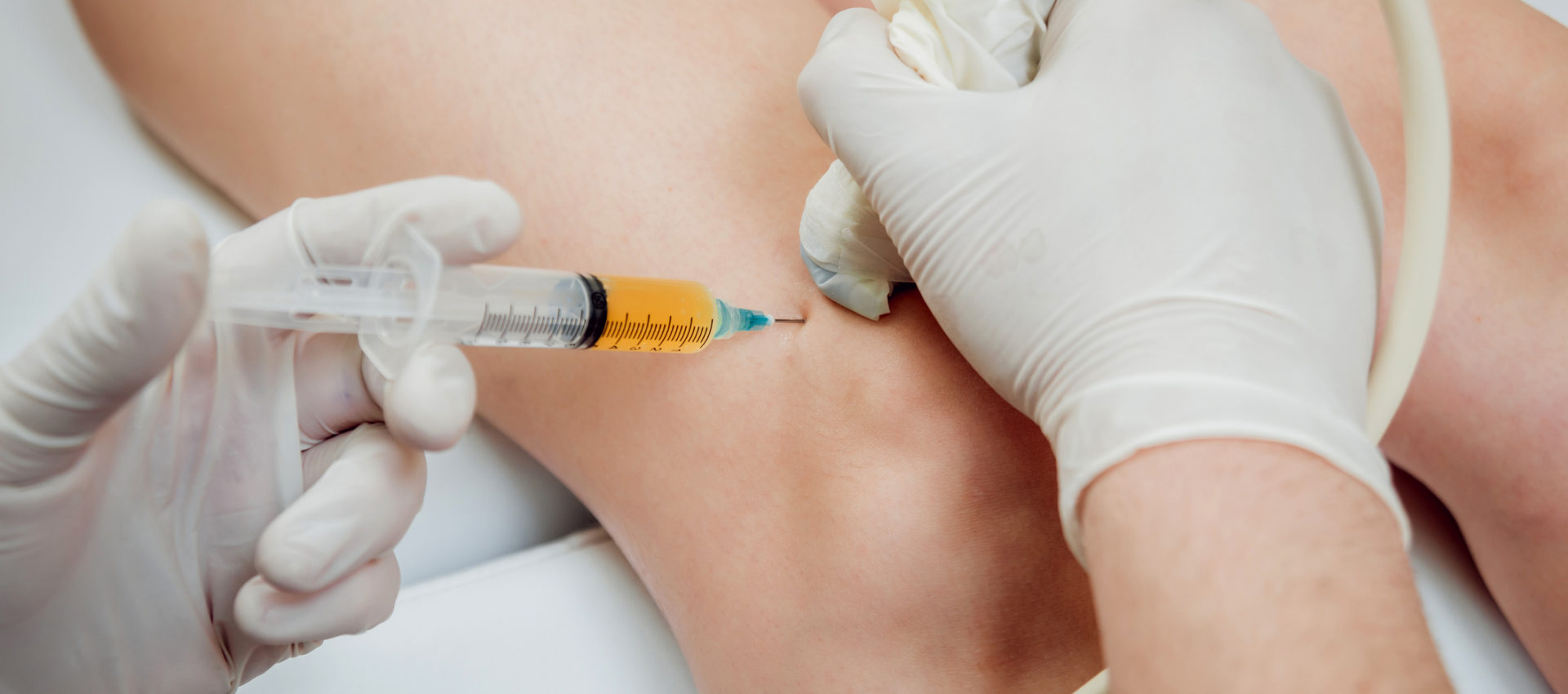Steroid (corticosteroid) injections are used to effectively treat inflammation and pain and are commonly used for a range of conditions that affect our muscles and joints.
At Vita Health Group we offer 2 types of injections: Corticosteroid injections and Hyaluronic acid, both are proven to reduce pain and increase mobility.
Corticosteroid injections
Corticosteroid injections have been widely used for pain relief in musculoskeletal (MSK) medicine and rheumatology since the 1940s. They are widely delivered under the NHS for management of pain of osteoarthritis and other MSK conditions- including bursitis, carpal tunnel and certain tendon related conditions.
The aim of the injections is to help relieve inflammation (swelling) and pain. The injection should reduce pain for at least 6 weeks and allow you to slowly return to your normal activities and engage in your rehabilitation programme from your physiotherapist.
Hyaluronic acid
Hyaluronic acid (HA) is a natural compound found in our joints, it plays a crucial role in lubrication and shock-absorption of a joint. HA injections are designed to help to lubricate joints and restore normal homeostasis (maintenance) of the joint, which reduces inflammation and pain. This treatment is considered for conditions that effect the production of HA, such as osteoarthritis. These injections are sometimes best considered at regular intervals. Various HA products are available, and your injecting clinician will help determine the best option for you.
For more information please contact us using the form or call us on 020 8778 9050 so we can discuss your suitability for the treatment. You can view our FAQ’s below.
Disclaimer: Please note that should a patient book an ultrasound scan that is deemed inappropriate or not clinically indicated for their presenting complaint, the sonographer (clinician) retains the discretion to determine whether diagnostic ultrasound is the suitable assessment tool. This decision will be made following a review of your medical history and a clinical assessment. If it is established that ultrasound is not appropriate for your condition, your scan may not proceed, and you will be advised on the appropriate next steps for your care.
Book an appointment
If you’re in physical pain or have an injury, call your nearest clinic or book an appointment online. We usually have same day availability if you need urgent assistance.























